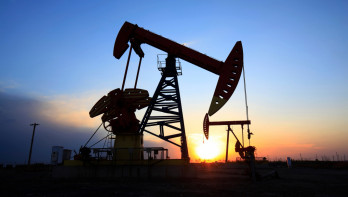Analysis Energy
Middle East dominates oil market on all fronts
The oil price was in the spotlight of the Middle East last week. A solid performance by OPEC led to a higher oil price. The fire was further fueled by Israel's announcement that a large-scale war with Lebanon is imminent.
The price of oil continued its correction. On Thursday, June 13, oil was traded for $82.75 per barrel. By Tuesday, June 18, the price had risen to the highest point of the week. On that day, the oil price reached €85.33. On Wednesday, June 19, the price had slightly dropped again, to $85.15.
The oil market has been quite volatile in recent weeks. Two weeks ago, oil was traded for €77.52 per barrel. The price of oil plummeted significantly after the oil cartel OPEC+ unexpectedly opened the door to a slight increase in oil production from the fourth quarter. This is a compromise with the United Arab Emirates. The country leads a faction within the cartel that prefers to produce more oil rather than aiming for higher prices.
Russia and Saudi Arabia manage oil price
The oil price is now 9.8% higher. Once again, OPEC and its members are setting the trend. The cartel has announced that oil demand is expected to increase in the second half of 2024. Additionally, Russia and Iraq have agreed within the cartel to reduce their oil production to OPEC standards. Both countries had been producing more than agreed upon within the cartel in recent months, raising questions about whether the cartel still had control over its members.
Furthermore, the two key members, Saudi Arabia and Russia, managed to push the price back up after expressing their continued desire to aim for a higher price. Since 2023, both countries have reduced their own oil production, as OPEC was unwilling to lower targets. Russia seemed to be considering breaking away from this stance, as the market effects are relatively limited compared to the loss associated with lower exports. However, the countries are now speaking with one voice again. Moreover, this is not the only reason the message pushed the oil price up. The countries have hinted at being willing to further reduce oil production in the future to boost oil prices.
Geopolitical tensions
Geopolitical tensions are also driving momentum. The conflict in Gaza, in particular, is pushing up the oil price, as further escalation towards a regional conflict seems imminent. Israel has approved a plan for a so-called full-scale war in Lebanon. Israel made this decision after Hezbollah filmed weapon factories and missile defense systems, as well as shopping centers and residential areas. Israel's Foreign Minister Yisrael Katz viewed the recordings as a threat. The minister expressed the intention to destroy Hezbollah and heavily target Lebanon.
The price of diesel rose this week to the highest point since mid-April. On Thursday, June 13, diesel was traded for €127.85 per 100 liters. By Tuesday, June 19, the price had increased significantly, to €131.33.




